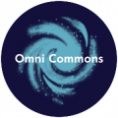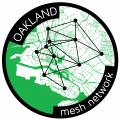This past month has been marked by:
- Moving from the ghetto of Bushwick to the gayborhood of Chelsea (Brooklyn->Manhattan).
- Getting laid off from my dog-running position (the day after we decided to move to the area).
- Extensive website-making and my nascent introduction to programming (Python).
- Working on my first publications, which are in the final stages of the editing process.
- A lot of beer-drinking and friendshipping while I wait to hear back from schools and start my new jobs.
At least I am not alone in my misfortune – just another victim of this drowning economy. On the plus side, the current climate has shattered the false gods of individualism and consumer culture, revealing the matrix of proximate connections and interrelationships that enables our survival. As we continue to weave this web of neotribes, those markers of identity that once defined our place in societal structures (be they institutionalized or “alternative”) become increasingly meaningless. Trust, authenticity and reciprocity, those factors which are paramount to the success of online communities (truly the “network of all networks” when I speak of neotribalism), have never been so essential to my survival as they are today.
It’s been an enormously eye-opening experience, and in the process I’ve learned a few things:
- Dissolution and spontaneity are easy; it’s the building of something new and true that’s the hard part.
- I’d rather be honest and poor than rich and wasting my time on that which does not align with my values.
- While I’d long considered myself oversensitive- prone to shutting down in the presence of those who make me feel uncomfortable- I’ve come to deeply value this instinctive mechanism of self-preservation. Trust is not something to be dispensed lightly.
- On that note, toxic friends construct their own social demise, so let them do so and avoid ’em at all costs.
- No matter where you are now and how alone you may feel, it will change again with great velocity and immense unpredictability.
- Thus, continue Big Dreaming and inventing the future, for life itself is an artform fuelled by love’s imagination.




